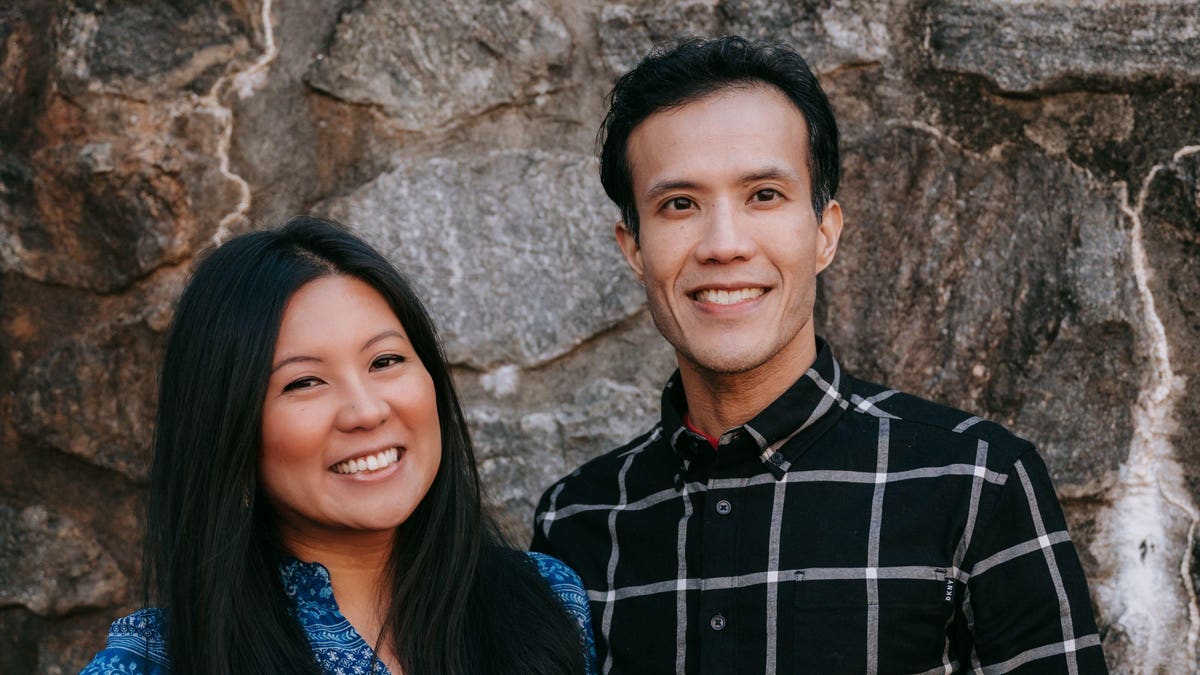We saved $1.2 million towards early retirement in our thirties as first generation Filipino … [+]
After five years of budgeting intentionally, doubling our income, and paying down $300,000 of debt, my husband and I saved enough for retirement by the time I was age 37 and he turned 40.
This means that we have enough money invested in our retirement funds. We no longer need to contribute to them and can let them grow, according to the calculation traditionally used by the FIRE (financial independence, retire early) movement.
Even though I reached my retirement goals early, there are surprises that I’m still learning to navigate. Here’s what they are and how to prepare for them.
Coast FIRE Means You Can Stop Finally Stop Saving For Retirement
Coast FIRE in particular involves front-loading your retirement savings, with the intention of halting them at a certain point. Then you let your investments grow with the power of compounding interest until they are enough to fully fund your retirement at age 65.
Reaching Coast FIRE kickstarted us into our next phase of money management:
- improving our tax and drawdown strategies;
- detaching from the hustle culture and using the term busy as a badge of honor; and
- learning who we want to be outside of work and productivity.
As of now we have a little more than $1.3 million saved. Hitting this number, however, forced me to face and change some narratives I’ve held onto for my adult life.
Lack Of Time Is No Longer An Excuse For Poor Health Habits
Our financial freedom journey started because I was on the verge of a mental meltdown. Rather than centering our time around maximizing productivity and achievement, we’re learning how to prioritize rest and relaxation — and it’s incredibly uncomfortable.
Now, I have more time to focus on the basics of healthy living: exercising regularly; eating intentionally; sleeping normal hours; visiting my therapist regularly; and spending more on medications and supplements.
But according to a survey by Zety, a careers website, 47% of respondents feared retirement more than poor health. I thought that when I saved enough money, I would be more motivated to improve my health.
If you’re waiting until your schedule clears up or you have more money in the bank to get your health in order — that’s a fallacy. I realized that I used the “I don’t have time” excuse when now it’s clear that even with free time, I haven’t made my health a priority.
In hindsight, I wish I had spent more money and focused on healthy living habits while I was accumulating wealth, rather than waiting until my financial goals were met.
You Still Might Want To Work —But Choosing What To Do Is Harder Than You Expect
My interest in creating personal finance content on social media and courses to writing articles and becoming a more seasoned stage speaker. A few years ago, I never would have dreamed of calling myself a speaker or a writer because I was more focused on making money than on honing my skills.
My husband is exploring childhood hobbies like collecting and trading comic books, and he started an Instagram page to document his treasure hunts. He also started to learn video editing and course creation to help me with my business.
Reaching Coast FIRE gives us more confidence and time to explore what different careers can be a fit for each of us. But as first-generation Filipino Americans, both our families defined success as high-paying, stable, blue-collar jobs with benefits and clear, linear career paths.
Even without the pressure of having to work as hard as we had in the past, we’re still unlearning the struggle between choosing the work we want to do and accepting the work that pays us the most. I still find myself focused on how to make more money or be more productive, instead of why I like the work I do in the first place.
You Can Travel More But Sometimes It’s Lonely
Whenever I ask my financial education students what they would do if they could retire early, the number one answer is always travel.
With both our jobs becoming fully remote, we tried becoming digital nomads. We have traveled more in the past two years than in the previous 10 years combined.
Except there’s one problem we didn’t anticipate: All of our friends are still working traditional full-time jobs, busy raising young families, or don’t have the extra funds to travel with us. As much as we love hanging out with each other, traveling would be more fun if we had other friends to go with.
Relationships And Recreation May Look Different Than What You Dreamed Of
And while I still plan to travel more frequently, I’m also recalibrating my friendships at home and finding other ways to make the city I live in still feel like an adventure.
I’ve replaced some of my travel plans with:
- taking walks with friends in local parks;
- reading for pleasure and not for self-development;
- hosting more in-person gatherings and board game nights;
- taking acting and improv comedy classes; and
- practicing for my first dance performance since college.
While I’m still in my thirties, most of the people I enjoy spending time with are now in their fifties because they’re in a more similar stage of life to me — less focused on young kids and their careers, and more focused on redefining their identities.
Even though reaching my financial goal of saving for retirement early has not been what I thought it would be, I don’t regret it at all. I encourage you to explore reaching Coast FIRE sooner than you originally planned.

